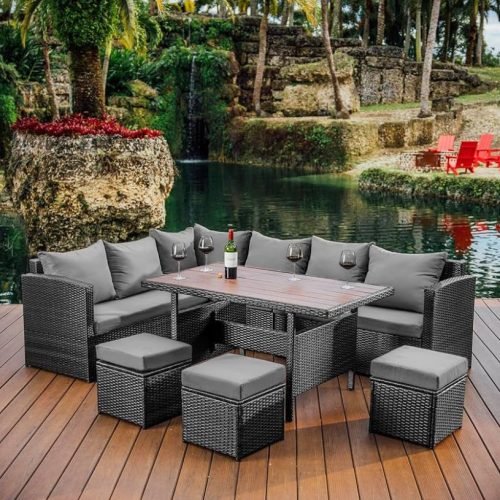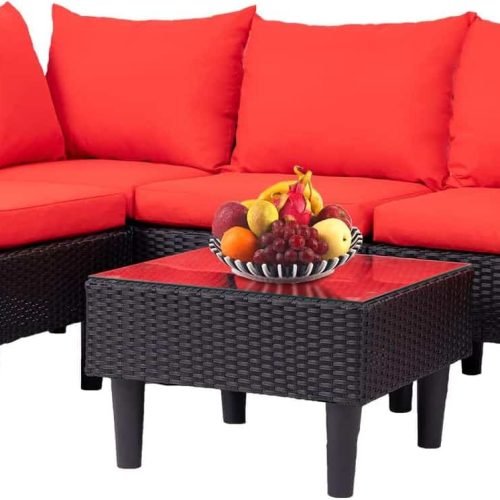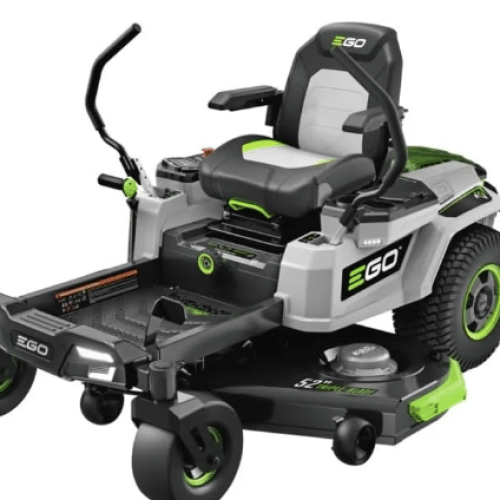Did you know up to 50% of outdoor water use is wasted? This is because of bad watering habits. To save water, gardeners can use smart irrigation methods. This makes gardens more eco-friendly and sustainable.
There are many ways to make your garden water-efficient. You can use plants that don’t need much water or set up drip irrigation systems. In this article, we’ll look at the top five ways to save water in your garden. These methods can make your outdoor space greener and more responsible.
Key Takeaways
- Inefficient watering accounts for up to 50% of outdoor water waste
- Drip irrigation systems can deliver water directly to plant roots, reducing evaporation and runoff
- Drought-tolerant plants require significantly less water, particularly in hotter climates
- Healthy, organic-rich soil retains more moisture, reducing the need for frequent watering
- Proper watering techniques, such as deep, infrequent irrigation, can optimize water usage in gardens
Understanding Water Conservation in Modern Gardening
Water conservation is key in modern gardening due to climate change. It brings more droughts and water scarcity. Gardeners help local wildlife and preserve native plants while keeping their gardens beautiful.
The environmental impact of garden water use is big. Gardens can use a lot of water.
The Environmental Impact of Garden Water Usage
Studies show each American uses about 82 gallons of water daily at home. A lot of this is for gardening. This high use can harm the environment, especially in areas with little water.
Using drip irrigation and soaker hoses can save a lot of water.
Benefits of Water-Efficient Garden Systems
Water-efficient garden systems have many benefits. Rainwater barrels can cut gardening water use by 40-50%. Drip irrigation systems can save up to 90% of water compared to sprinklers.
Xeriscaping and mulching help gardens need less water. They also lower water bills and make gardens more resilient.
Current Challenges in Garden Water Management
Even with the benefits, there are challenges in using water-efficient systems. Gardeners must adjust to climate changes. They need to balance their garden’s water needs with saving water.
Using new tech, like smart irrigation, can help. It adjusts watering based on soil moisture. This ensures water is used wisely.
Top 5 Water-Saving Irrigation Techniques for Eco-Friendly Gardens
Water conservation in gardens is key for sustainable gardening. By using these water-saving methods, gardeners can lessen their environmental footprint. They can also grow beautiful, water-efficient gardens.
- Drip Irrigation: This method uses up to 80% less water than traditional overhead watering. It delivers water slowly to the soil, reducing evaporation. This ensures plants get just the right amount of moisture.
- Gray Water Systems: Using water from baths, sinks, or washing machines can greatly reduce freshwater use. These systems cost between $100-$300 for the necessary valves. They offer a green way to water your garden.
- Water Harvesting and Catchment Systems: Rain barrels can collect rainwater from roofs, providing a self-sufficient water source. Costs vary from $50-$500+ based on size and number. One inch of rain on a 1,000 square foot roof can yield up to 625 gallons.
- Mulching Practices: A 6-8″ layer of organic mulch, like straw ($15 per 40lb bale), keeps soil moist. It also cuts down on evaporation and weeds. This can reduce water needs by up to 50%.
- Smart Watering Techniques: Watering in the morning and focusing on the root zone are smart moves. Using efficient tools like soaker hoses and drip lines can deliver up to 90% of water to plants. This is much better than sprinklers, which only use 40-50%.
By using these water-saving methods, gardeners can make their gardens eco-friendly and drought-tolerant. These gardens will thrive while saving precious water.
Conclusion
Using water-saving irrigation techniques is key for eco-friendly gardens. These methods save water and help plants grow better. They also cut down on garden upkeep.
Techniques like drip irrigation and rainwater harvesting are great. Mulching and smart watering also help. These methods let gardeners use less water while keeping their gardens looking good.
These methods help with water scarcity and climate change. Using advanced sprinklers and weather-based scheduling saves water. Choosing drought-resistant plants and catching rainwater also helps.
By using these water-saving strategies, gardeners can have beautiful gardens. These gardens save water, lower utility bills, and help the planet. Gardening in a water-saving way is good for the environment and sets a positive example.
FAQ
What are the top water-saving irrigation techniques for eco-friendly gardens?
The top 5 water-saving techniques for eco-friendly gardens are: 1) Drip Irrigation, 2) Gray Water Systems, 3) Water Harvesting and Catchment Systems, 4) Mulching Practices, and 5) Smart Watering Techniques.
What is the environmental impact of garden water usage?
Garden water usage has a big environmental impact. Gardens use a lot of water. But, using water-efficient systems can help. This reduces water bills, makes gardens more resilient, and helps local ecosystems.
What are the benefits of water-efficient garden systems?
Water-efficient garden systems have many benefits. They lower water bills and make gardens more resilient. They also support local ecosystems. These systems help gardens face water scarcity and climate change, making gardening more sustainable.
What are the current challenges in garden water management?
Garden water management faces several challenges. These include adapting to climate changes and balancing water needs with conservation. Gardeners play a key role in supporting local wildlife and preserving native plants while keeping their gardens.
Source Links
- How to reduce water waste in your yard – 5 water-saving solutions for greener summer gardening
- Eight Steps to a Water-Wise Garden | Gardener’s Supply
- 9 Tips to Create a Sustainable Water Efficient Home Garden in Tampa, FL
- Low-Maintenance Garden Design and Water Conservation Tips for Sustainable Landscapes”
- Water Conservation: Essential Strategies for Sustainable Living – Water & Wastewater
- Tips for Collecting Rainwater for Your Garden
- Eight Steps to a Water-Wise Garden | Gardener’s Supply
- 10 Essential Tips to Save Water for Your Lawn & Garden
- Water Conservation Strategies For Summer | Mansfield






